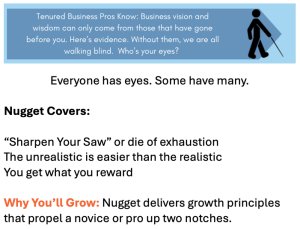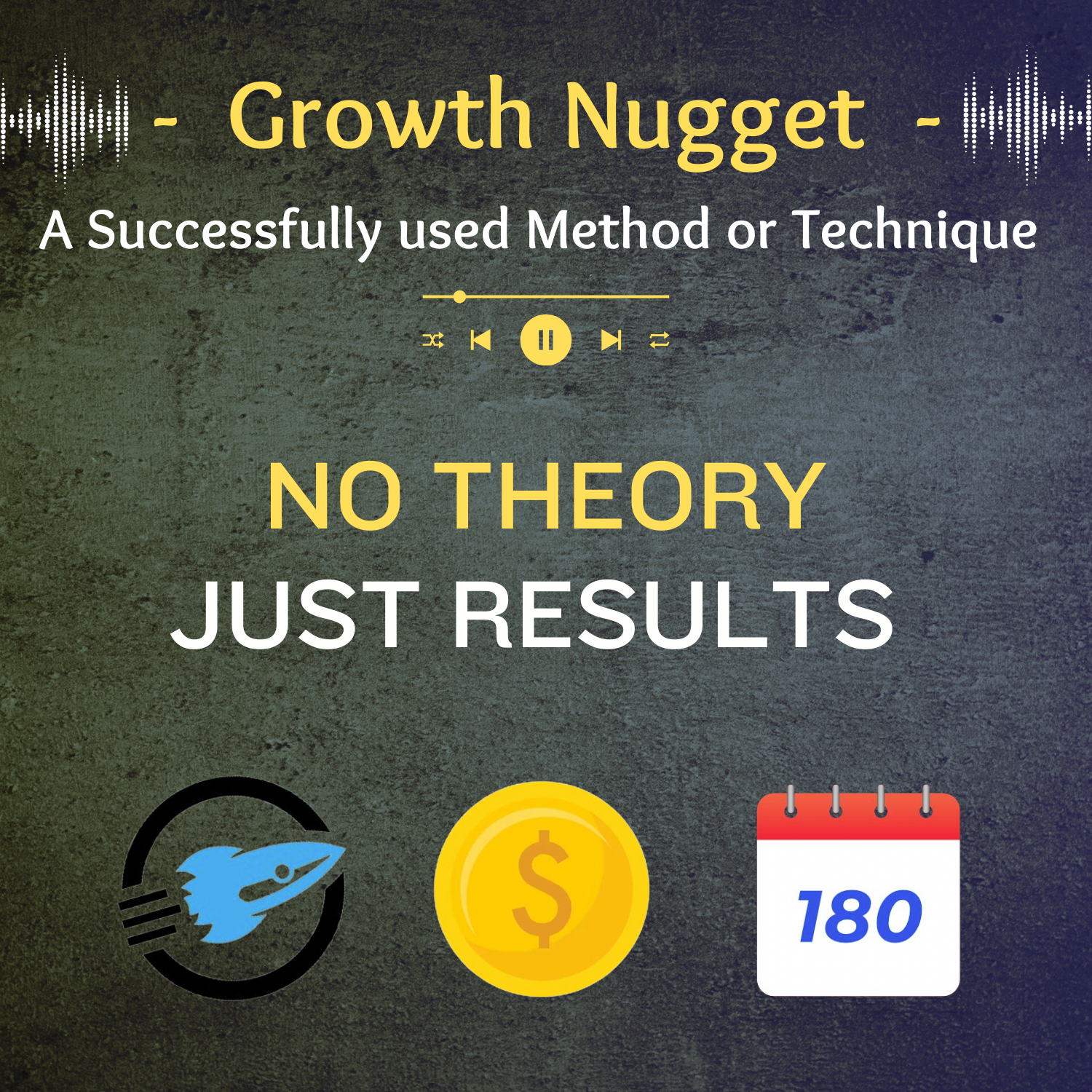The Vision You Need
$23.00
All quarterly and annual growth meetings should include this info on some form of checklist.
We’ve all heard the phrase, “You don’t know, what you don’t know.” Did you know that Burger King spent years poaching the best management from McDonalds? Why? Because they didn’t know, what they didn’t know. The result? They had the greatest explosion of growth in their company’s history.
There are many tried and true formulas to grow any product in any industry. This nugget provides tactics, strategies and insights by a few of the greatest business growth minds of our generation.
Have you ever heard a bit of information and everything had to stop until you wrote it down? That is the type of information in this nugget.
If you are in management or ownership of a company, and in any way responsible for top-line growth of your organization, this is a MUST HEAR!
A nugget that you will hear and instantly want to share and ask for implementation from those around you.

All quarterly and annual growth meetings should include this info on some form of checklist.
We’ve all heard the phrase, “You don’t know, what you don’t know.” Did you know that Burger King spent years poaching the best management from McDonalds? Why? Because they didn’t know, what they didn’t know. The result? They had the greatest explosion of growth in their company’s history.
There are many tried and true formulas to grow any product in any industry. This nugget provides tactics, strategies and insights by a few of the greatest business growth minds of our generation.
Have you ever heard a bit of information and everything had to stop until you wrote it down? That is the type of information in this nugget.
If you are in management or ownership of a company, and in any way responsible for top-line growth of your organization, this is a MUST HEAR!
A nugget that you will hear and instantly want to share and ask for implementation from those around you.
(0:00 – 1:31)
Graduates, 40 amazing people, entrepreneurs, business owners, and I found myself when I was sitting in the planning sessions and the mastermind sessions, spotting a number of different repeatable things in different people’s business plans. So I found myself consistently recommending certain tips, certain nuggets, certain techniques, and one thing that was common is there was a number of books that I kept recommending that these books are, I don’t know, five, maybe seven to 30 years old. And in their heyday, they were all New York Times, Wall Street Journal, bestsellers, but they’re not very common today.
I think with the speed of thought today and how just massively disruptive the internet is, I’m sensing a tremendous drive towards fundamental principles of business. I’m also smelling a fundamental thought that entrepreneurs today think the internet and the web is going to do all the work for you and all the heavy lifting. If you can just have this one magical website, everything’s going to be great.
The world’s going to find you and everybody’s going to buy stuff from you. That could not be further from the truth. A series of books that I have read over and over and over.
(1:32 – 3:05)
There’s a number of them. I’m only going to cover three of them today. But I don’t think these are optional.
I recommend them to so many different people. I am glad that I have the first time to kind of digitize this recommendation so people can hear it and pass it to their friends. I’m going to get started.
The first book that I think is tremendous, I think it’s overlooked because it was so incredibly popular for a couple of years that it’s almost like that cliche where, oh my God, if I hear one more person recommend that book yet, I recommend all the time. I bump into very few people that have ever read it cover to cover. The first book is Tim Ferriss’s original four-hour work week.
It’s from 2007. There are three fundamental points to this book that as I have conversations with people about the book, these never come up. I wonder if people actually read it or, you know, I’m just reading into some stuff that other people aren’t catching.
But anyway, number one point of the book, less is not laziness. Working less does not mean you’re lazy. He dedicates two to three chapters to this point.
I think that principle has got to get slammed home. Number two, ask forgiveness, not permission. I cannot tell you how much I apply that principle in my day-to-day operations.


